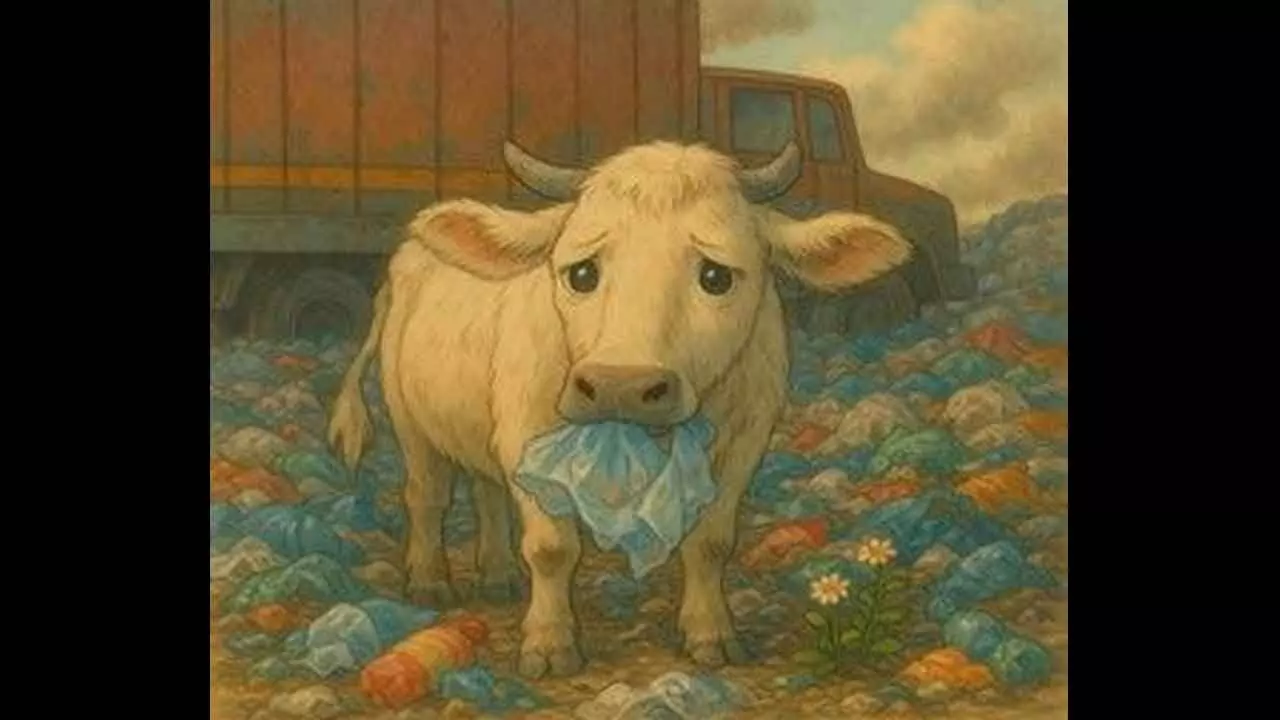Simple Alternatives To Cut Out Single-Use Plastics For Good
As microplastics invade our bodies and carbon emissions from plastic production surge, the need for urgent, collective action is undeniable
Simple Alternatives To Cut Out Single-Use Plastics For Good

Single-use plastics might offer momentary convenience, but their long-term consequences are devastating—for the planet, marine life, and even human health. From production to disposal, plastics release between 12.5 and 13.5 million metric tons of carbon dioxide every year, significantly contributing to climate change. And the crisis is only worsening. Currently, plastic manufacturing consumes 6 per cent of the world’s oil supply—a figure projected to rise to 20 per cent by 2050 if current trends continue.
The consequences stretch beyond emissions. Plastic pollution threatens marine ecosystems and has entered the human food chain through microplastics. Scientists have detected traces of plastic in human bloodstreams, raising concerns about links to cancer, infertility, and hormonal disruptions. If we fail to act now, single-use plastics could account for 10 per cent of global greenhouse gas emissions by mid-century.
Yet, change is possible—and it starts with simple, mindful choices. Using reusable bags, saying no to plastic straws, and choosing sustainable packaging can collectively make a powerful difference.
Why single-use plastics a problem?
Single-use plastics—items like disposable bags, bottles, straws, and food packaging—are designed for one-time use before being discarded. But in reality, these items don’t go away. They persist for centuries, polluting land, water, and air. Over 380 million tons of plastic are produced annually, with more than half used for packaging that’s often thrown out within minutes.
Derived from fossil fuels, plastic doesn’t biodegrade. Instead, it breaks down into microplastics, infiltrating food, water, and even the air we breathe. The effects on human health are concerning: studies have linked plastic toxins to long-term health issues, including endocrine disruption and reproductive disorders.
The environmental cost is equally dire. Plastic waste clogs waterways, harms marine life, and destroys habitats. Animals often ingest plastic debris, mistaking it for food, leading to injury and death. And when plastic is burned, it releases toxic chemicals into the air, causing respiratory problems and worsening air quality.
A crisis close to home
Plastic pollution is no longer a distant concern; it’s embedded in our everyday lives. Whether it’s litter on city streets, plastic-laden drains causing floods, or toxic fumes from burning waste, the problem affects urban and rural communities alike.
Microplastics have been found in bottled water, seafood, and even household dust, highlighting the widespread nature of contamination. Wildlife suffers acutely, with species across ecosystems suffering from entanglement, suffocation, and ingestion.
But there is hope. Each individual can contribute to reversing the damage by making more sustainable choices and reducing reliance on disposables. Recycling, reusing, and simply refusing plastic where possible can collectively bring about meaningful change.
Simple changes that matter
While the statistics are grim, solutions are within reach. Sustainable alternatives not only reduce waste but are often healthier, more durable, and more economically viable in the long run. Here are some impactful options:
• Reusable cutlery & kitchenware: Stainless steel or bamboo utensils, cloth napkins, and steel or glass containers offer excellent substitutes for plastic spoons, plates, and cling film.
• Eco-friendly packaging: Kraft paper, banana leaves, recyclable cardboard, and corn-starch-based trays are biodegradable options that reduce environmental impact.
• Refillable toiletries: Ceramic or metal dispensers for soap and shampoo, refill stations at stores, and glass jars for oils and lotions can help cut down plastic waste in bathrooms.
• Sustainable bottles & straws: Replace disposable plastic bottles with durable options like insulated stainless steel or copper bottles. Bamboo or silicone straws also offer stylish, reusable choices.
• Natural household materials: Bamboo toothbrushes, wooden spatulas, recycled-wood furniture, and beeswax wraps for food storage offer safe, natural replacements.
Every substitution brings us a step closer to a cleaner, healthier world.
India’s grassroots momentum
India is taking decisive steps to curb plastic pollution through policy reforms and community engagement. Local governments are leading the way with innovative, scalable solutions.
In Kerala, the government has imposed a ban on single-use plastics, encouraging citizens to adopt eco-friendly practices. The widespread use of glass and metal containers is gaining traction, bolstered by awareness campaigns that emphasize long-term benefits.
Delhi’s approach under the Plastic Waste Management Rules is also commendable. The city has banned certain plastic products and installed water refill stations in public places, making it easier for residents to use reusable bottles. Initiatives like these not only reduce plastic consumption but also create a model for other regions to replicate.
By prioritizing sustainable alternatives and spreading public awareness, these government-led initiatives underscore the power of local action in addressing a global issue.
A collective responsibility
As we move forward, it's essential to recognize that reducing plastic pollution is a collective responsibility. Each of us has a role to play in reducing our dependence on single-use plastics. With the right tools and awareness, we can make meaningful changes in our everyday lives. Through collective efforts and early education, we can create a society where sustainability is not just a choice but a way of life.
By adopting sustainable practices within our domestic environments, we hold the potential to reduce plastic pollution, protect our health, and enhance the integrity of our ecosystem for the advantage of future generations.
Every action, irrespective of its magnitude, is instrumental in the creation of a more robust planet. Let us aspire to be the generation that initiates a transformative shift—one reusable step at a time. A plastic-free future isn’t a dream—it’s a decision we make, one mindful moment at a time.
(Writer is an IGBC accrediated professional)

